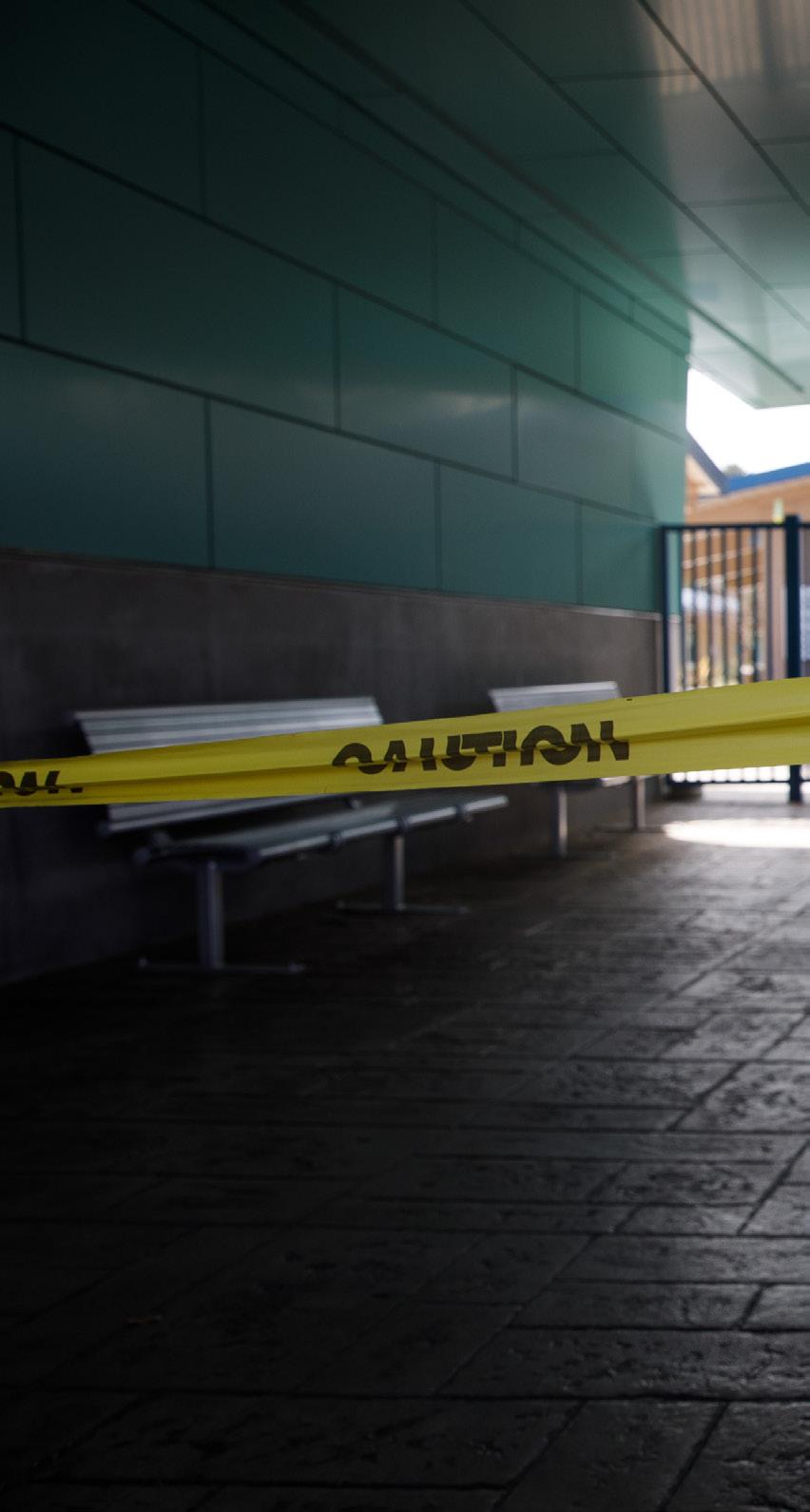
8 minute read
The Bank of America will allow borrowers to pause their mortgage
THE BANK OF AMERICA WILL ALLOW BORROWERS TO PAUSE THEIR MORTGAGE PAYMENT
While the corona scare has created an impossible situation for the lenders, mortgage relief is coming in fast and furious. Mid last month, the Department of Housing and Urban Development, Fannie Mae and Freddie Mac announced that they will be suspending foreclosures and evictions for at least 60 days. Following this announcement, the state of New York declared that certain borrowers in the state could forgo their mortgage payments up to 90 days. Joining the move was one of the nation’s biggest banks, the Bank of America, announcing that borrowers who are experiencing financial hardships due to the virus can pause their mortgage payments.
“We’re going to continue to provide convenient access to the important services they count on, and the additional assistance and support they need during this difficult period,” Dean Athanasia, president of the consumer and small business at Bank of America, said in a statement.
Included among the support option is the ability for the customers to defer mortgage payments. The bank says that the mortgage and home equity customers can make requests to defer their payments while the crisis rages. These payments will then be added to the end of their loan. Simply put, right now, borrowers can put a break on their payments but eventually, they will have to make those payments. According to the bank, payment deferral will be on a case-to-case basis and can be extended on a month-to-month term.
These policies only apply to the loans held by the Bank of America, not the loans that are backed by Fannie Mae or Freddie Mac or the Federal Housing Administration. The mortgage holders will have to request for the relief directly from through the bank. Up until now, there is no formal word on how many payments can be waived or for how long. According to the bank, there will be no negative credit bureau reporting for up-todate clients.
It should also be noted that pausing on mortgage payments Is not the only step that the bank has taken for its 66 million consumer and small business clients, the bank has also paused on the foreclosure sales, eviction and repossessions.
“This is a real-life benefit,” Andrew Cuomo, New York Governor said in a press conference. “People are under tremendous economic pressure. Making a mortgage payment can be one of the No. 1 stressors. Eliminating that stressor for 90 days—I think—will go a long way.”
mortgage payments, has also taken other several measures, completely out of the mortgage docket in a bid to safeguard its huge clientele. Such measures included;
• Consumers will be able to ask for refunds including overdraft fees, non-sufficient funds, and monthly maintenance fees.
On credit cards, consumers will be able to request to defer payments, and refunds on late fees.
On small business loans, clients can request to defer payments, refund on late fees.
On auto loans, clients can request to defer payments, with the payments added to the end of the loan.

Nevertheless, the bank noted that all these options are available to the consumer on a case-by-case basis. This obviously raises the question of whether the employees will be able to analyze each customer based on their needs and urgency. But the bank has come out to state clearly that its employees, especially those dealing with the clients have been “trained to identify and assist impacted clients and provide the right support to address their unique needs.”
“Our clients rely on us every day and for every aspect of their financial lives,” said Dean Athanasia, president of the consumer and small business at Bank of America.
“We’re going to continue to provide convenient access to the important services they count on, and the additional assistance and support they need during this difficult period,” Athanasia added. “Our priorities are taking care of our team and each other, and continuing to fulfill our fundamental role serving our clients.”
Sources & Works Cited https://www.housingwire.com/articles/ bank-of-america-will-allow-borrowersto-pause-their-mortgage-payments/ https://edition.cnn.com/ world/live-news/coronavirusoutbreak-03-19-20-intl-hnk/h_ eee0559e63fc3a1579d39056801bb1bd https://www.forbes.com/ sites/alyyale/2020/03/19/ bank-of-america-mortgagecoronavirus/#2d0d7ee815ad


Peppermint Ridge? Do you know
We provide a community of loving homes and empowering support services for individuals with intellectual and developmental disabilities.


support and encourage our residents to live their lives and fulfill their dreams by fully embracing their indvidual abilities and interests. With 24-hour specialized care and staff ing, we provide comfortable, secure homes and recognize that everyone feels a sense of belonging when they have familiar places in which to spend time with family and friends. We
is a true sense of family at Peppermint Ridge. Of the 94 adults who live at The Ridge, 38 have lived here for more than 20 years, with 10 of those calling The Ridge home for 40 years or more. Residents have the opportunity to flex their muscles of independence while developing rich lives of their own away from their loved ones. About 30% of our residents have no family, so other Ridgers and our staff have become their family. There
Many caring companies, organizations and individuals in the community enjoy getting to know The Ridge by helping on small projects, hosting fundraisers, lending a hand at events, volunteering in our office, and assisting residents in activities such as arts and crafts, pool days, horseback riding, music and piano lessons, and exercise classes.



SCHOOLS MAY CLOSE BUT DO NOT LIMIT ACCESS TO MENTAL HEALTH CARE
Even as the novel coronavirus cases continue to spread like wildfire, the mitigation should be focused on its spread, but more so on its impact on mental health. Health policies and practice call for a health and mental health parity and for a greater focus on the universal interventions to promote, prevent, and intervene as early as the onset of the problem as is feasible. And right now, this is the opportune moment to intervene before the problem grows out of scale. The people in public health docket are uniquely positioned to help promote the mental health of young people and vulnerable populations.

In a bid to protect these vulnerable populations, including older adults and the people with underlying health conditions, one of the many actions that the California government has taken is closing down the schools all across the state. This comes in an effort to flatten the virus contagion curve and to slow down it’s spreading. Given the magnitude of the virus, this sure seems like a reasonable move. As of the time of writing this article, all schools in California had closed, all but one – Outside Creek Elementary in Tulare County, with about 100 students. This means that the pandemic has affected about 100 percent of the 6 million children in public schools.

Schools are very key in helping to mitigate the causes of mental health problems in young adults. Statistics show that for diagnosable mental disorders suggests that between 12% and 22% of all youngsters under the
age of 18 are in need of services for mental, emotional, or behavioral problems. While closing schools is a good move in light of the pandemic, we have to be very cautious and carefully manage the impact it will leave on our vulnerable children and the mental health clinicians who take care of them. Covid-19 brings a lot of issues we need to be worried about, but given the impact, it has on our children, the state, counties and the parents should take some necessary steps to mitigate the collateral damage of school closures. What’s more important than protecting our children’s emotional health?

Before the corona pandemic, California was already struggling with a low-key pandemic. Between 2006 and 2016, twice as many children were admitted in the Emergency rooms for serious self-injury, a 104-percentage increase. The number of days that a child spent in hospital simply because of mental health issues went up 50 percent. And between 2007 and 2017, the suicide rate among youths rose 87 percent. This is an alarming trend that was already occurring before the school closure. What I am worried about is the fact that this pandemic has disrupted our children from their social circles and treatment services they are federally entitled to under the Medicaid and Individuals With Disabilities Education Act. It is projected that amid the pandemic, mental health systems that serve the children will see a decline in outpatient capacity with the closure of schools reaching up to 50 percent. Most of all, disruption of social circles and fear will exacerbate mental health conditions and challenges.
Counties run local safety nets, and if there are delays in acting on them, children will suffer. While the state and federal guidance on the pandemic is important and welcome, they only work if the counties act on them. The fragile and overburdened safety nets that many jurisdictions have been able to put together will serve as collateral damage to the pandemic. To make sure this is far from reality, we need to allow our children in need of mental health support to access services with in-person meetings. Also, we need to guarantee the










